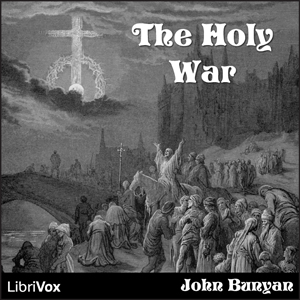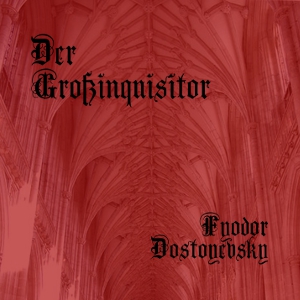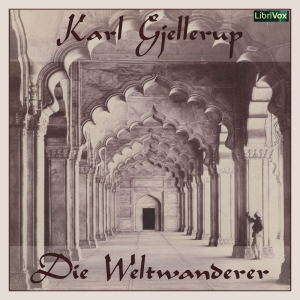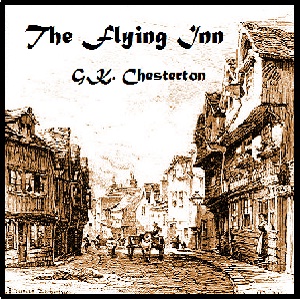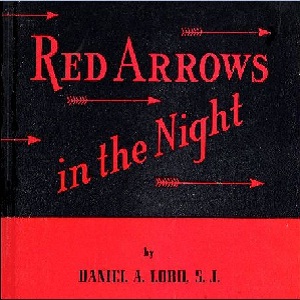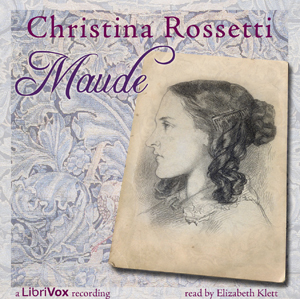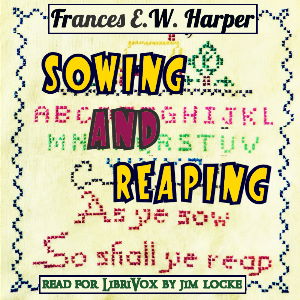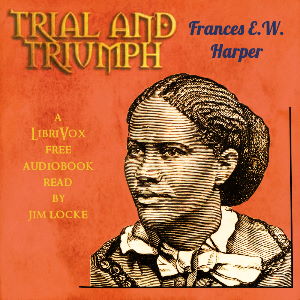The Holy War is perhaps John Bunyan's second most popular work, after The Pilgrim's Progress. It tells the story of a fierce battle to take control of a city from its rightful ruler. (Summary by Joy Chan)
20 episodes
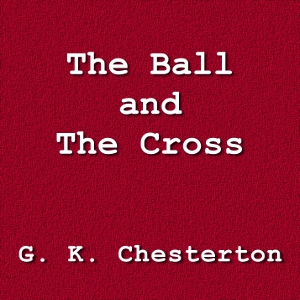
The Ball and the Cross is G. K. Chesterton's third novel. In the introduction Martin Gardner notes that it is a "mixture of fantasy, farce and theology." Gardner continues: "Evan MacIan is a tall, dark-haired, blue-eyed Scottish Highlander and a devout Roman Catholic.... James Turnbull is a short, red-haired, gray-eyed Scottish Lowlander and a devout but naive atheist.... The two meet when MacIan smashes the window of the street office where Turnbull publishes an atheist journal. This act of rage occurs when MacIan sees posted on the shop's window a sheet that blasphemes the Virgin Mary, presumably implying she was an adulteress who gave birth to an illegitimate Jesus. When MacIan challenges Turnbull to a duel to the death, Turnbull is overjoyed. For twenty years no one had paid the slightest attention to his Bible bashing. Now at last someone is taking him seriously! Most of the rest of the story is a series of comic events in which the two enemies wander about seeking a spot for their duel." MacIan and Turnbull become friends as they protect each other from interference from the modern world, which has trivialized their views over life's most important question (the existence of God) and outlawed their honorable duel. The irony is heightened when they both fall in love with ladies who happen to hold to their opponent's deepest convictions. Professor Lucifer and a Bulgarian monk also play important roles in this perennially relevant story. (Summary by Matthew Heckel)
20 episodes
"Der Großinquisitor" ist eine Erzählung aus dem Roman "Die Brüder Karamasow". Die Handlung spielt im 16. Jahrhundert, in Sevilla. Jesus, auf die Erde zurückgekehrt, wird von einem greisen Großinquisitor verhaftet und soll auf dem Scheiterhaufen verbrannt werden. (Introduction by Al-Kadi)
2 episodes
Der Roman "Die Weltwanderer" spielt in Nordindien in der ersten Hälfte des vorletzten Jahrhunderts. Die Protagonisten sind ein weiser indischen Minister, ein deutschen Gelehrten und seine hübsche Tochter und ein skrupellosen Engländer, der ein Freund Lord Byrons war. Um das buddhistische Konzept der Wiedergeburt webt Gjellerup seine Erzählung um ein altes Manuskript, Thugs, Intrigen, Leidenschaft und wahrer Liebe.Karl Gjellerup war Däne, schrieb hauptsächlich auf Deutsch und wurde 1918 mit dem Nobelpreis für Literatur ausgezeichnet.
47 episodes
The Flying Inn is a novel first published in 1914 by G.K. Chesterton. It is set in a future England where a bizarre form of "Progressive" Islam has triumphed and largely dominates the political and social life of the country. Because of this, alcohol sales are effectively prohibited. The plot centers around the adventures of Humphrey Pump and Captain Patrick Dalroy, who roam the country in their cart with a barrel of rum in an attempt to evade Prohibition, exploiting loopholes in the law to temporarily prevent the police taking action against them. (Summary from Wikipedia)
25 episodes
“Mr. Benson sees the world, four or five generations hence, free at last from all minor quarrels, and ranged against itself in two camps, Humanitarianism for those who believe in no divinity but that of man, Catholicism for those who believe in no divinity but that of God.” This apocalyptic novel from the early 1900's is sometimes deemed one of the first modern dystopias. (Summary from an original London Times review and Wikipedia)
59 episodes
The Scarlet Archer of Agincourt is claimed by the Erkenwold’s as their family ghost. Tradition held that the death of an important Erkenwold was always heralded by the apparition of the Scarlet Archer. Now in the early years of WWII, the archer has made an appearance on the family estate on the US coast. Is it a ghost or something more sinister, and what does he or she want?This mystery novel was written by Daniel A Lord, S.J., who was a popular American Catholic writer. The subjects of the works in his bibliography range from religion, humor, plays, songs, mysteries and even politics. His most influential work was possibly in drafting the 1930 Production Code for motion pictures. (Introduction by Maria Therese and Wikipedia)
9 episodes
A satirical look at early biblical events from the point of view of someone who was there to witness most of them: the oldest man in recorded history. (Introduction by Matthew Reece)
10 episodes
Young Azerole Montoux and her brother Leon find themselves separated from their family by the religious persecutions of 1686. Threatened by the authorities and forced to depend on strangers, they must decide whether they can trust God to make sense out of the riddle of their lives. (Summary by bookAngel7)
28 episodes

In a former book, called "Lord of the World," I attempted to sketch the kind of developments a hundred years hence which, I thought, might reasonably be expected if the present lines of what is called "modern thought" were only prolonged far enough; and I was informed repeatedly that the effect of the book was exceedingly depressing and discouraging to optimistic Christians. In the present book I am attempting -- also in parable form -- not in the least to withdraw anything that I said in the former, but to follow up the other lines instead, and to sketch -- again in parable -- the kind of developments, about sixty years hence which, I think, may reasonably be expected should the opposite process begin, and ancient thought (which has stood the test of centuries, and is, in a very remarkable manner, being "rediscovered" by persons even more modern than modernists) be prolonged instead.We are told occasionally by moralists that we live in very critical times, by which they mean that they are not sure whether their own side will win or not. In that sense no times can ever be critical to Catholics, since Catholics are never in any kind of doubt as to whether or no their side will win. But from another point of view every period is a critical period, since every period has within itself the conflict of two irreconcilable forces. It has been for the sake of tracing out the kind of effects that, it seemed to me, each side would experience in turn, should the other, at any rate for a while, become dominant, that I have written these two books. (From the preface of The Dawn of All)
20 episodes
Anatole France, in his satirical and allegorical fashion, weaves a tale of fantasy which finds a mischievous guardian angel stealing books from his earthly charge, who happens to be an archbishop in possession of a plethora of literature, mostly theological in nature. After voracious reading and then becoming a "fallen" angel, he decides to search for and recruit other "fallen" angels who devise a plan to attempt an overthrow of the rule which had set their fate, realizing that revolt is necessary and inevitable. What follows is preparation for a battle to revenge what has befallen them (and mankind itself). But surprises find their way into the plans, as well as the question that if they win the war, what will change? - Summary by Roger Melin
35 episodes
Maude is a novella by Christina Rossetti, written in 1850 but published posthumously in 1897. Considered by scholars to be semi-autobiographical, the protagonist is 15-year-old Maude Foster, a quiet and serious girl who writes poetry that explores the tensions between religious devotion and worldly desires. The text includes several of Rossetti's early verses, which were later published as part of her collections of poetry. - Summary by Elizabeth Klett
3 episodes
These short stories, perhaps we might call them modern parables, are not the usual fare of warm and fuzzy Christmas stories (pleasing as those are) but rather life events and crises triggered by Christmas, present or imminent. Brady was a journalist, historian, adventure writer, and Episcopal priest. - Summary by Wikipedia and David Wales
11 episodes
"Rotha is a poor American girl who has to see both her parents die. All that time, she is comforted by an English friend of the family, Mr. Digby-Southwode. Mr. Digby-Southwode thinks he does the right thing by committing Rotha to the care of her wealthy aunt, a woman who wronged her mother and robbed her of her rightful fortune, while he returns to England to nurse his dying father. Would the wealthy aunt treat Rotha as she treated her mother or is there a chance for redemption? And would Mr. Digby-Southwode ever return to America and see Rotha again? The book is very modern in tone. - Summary by Stav Nisser
Proof-listened by Kimberly Krause and Fiddlesticks
32 episodes

Born in London's poverty-stricken and heavily Jewish East End, the Lipcott boys create their own successes in life and love. The brothers' commitment to improving the lives of working class people leads them to concoct The Scheme to help both the residents of their former neighbourhood and the Jewish people as a whole. The author stresses the responsibility of middle class Jews toward the Jewish poor. Consequently, this 1900 story has its preachy moments as well as some essentialised speculations about Jewish history and character. But the book isn't all earnestness - there are character studies, love interests, and some great comic scenes, too!
The son of a Russian rabbi, Samuel Gordon (1871-1927) was born in Germany and came to England at the age of 13. Like Phil Lipcott, his protagonist in this novel, Gordon attended Cambridge University. The club envisioned by The Scheme seems modeled after London's Jewish Working Men's Institute. This was one of several East End organisations (e.g., the Jewish Girls Club, the Brady Boys Club) established by Jewish philanthropists around the turn of the 19th century to "instill in the rising generation all that is best in the English character..." (Col. A. E. Goldsmit, founder of the Jewish Lads Brigade). (Summary by Adrian Praetzellis)
34 episodes
New York City in the early 20th century, a boy with an angelic voice, his devoted mother, the great Episcopal Cathedral of Saint John The Divine. - Summary by david wales
6 episodes
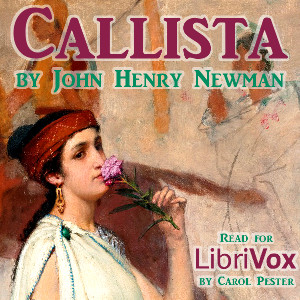
Callista, A Tale of the Third Century, was written by John Henry Newman, who was a scholarly and personable Anglican theologian who became a Catholic priest and cardinal, bringing a good number of Protestant friends along with him into the Roman faith. He wrote Callista as the fruit of a challenge (dare we say “bet”?) with Cardinal Nicholas Wiseman that each man would write a novel about the early church. Wiseman wrote Fabiola and Newman wrote Callista, publishing it in 1855. The title character is a beautiful and talented, but unhappy Greek woman living in pagan Roman North Africa in the third century. She is wooed by a lonely young Christian man, for whom she shows little interest, though she deeply desires to know more about his Christian faith. However, the third century was a dangerous time for Christians, with the onset of persecution under the Emperor Decius. The colorful cast of characters react to the persecution in different ways, but some are put to the ultimate test of whether they will maintain their faith at the price of torture and painful death. Cardinal Newman's writing style is often lively, and occasionally humorous, especially in his conversations. But there is no denying that modern readers may find parts of it quite wordy, particularly in the descriptions of geography (beware Chapter 1!). Most readers are likely to find themselves caring very much about the characters, and cheering for their victories, in addition to learning quite a bit about 3rd century history along the way. (summary by Carol Pelster)
36 episodes

'The Cloister and the Hearth', by Charles Reade, was published in 1861. It's a long and winding picaresque novel set in 15th century Europe, telling the story of the love between Gerard Eliason, an artist turned priest, and Margaret Brandt, the daughter of a poor scholar, and reflects the conflict between family and church which overshadowed the lives of so many in medieval times.
Its uniqueness lies in the way Reade, having meticulously researched his subject and the period, gives us insights more detailed than any other writer of fiction into medieval lifestyles and morals, combined with vivid descriptions of his characters – many based on real historical figures – and locations. He deliberately strays towards a medieval writing style, with many an archaic word to tantalise the reader or listener (an education in itself).
Until well into the twentieth century, ‘The Cloister and the Hearth’ was considered one of the greatest novels in the English language. Its popularity may have faded, but those who have read it will tell you of the enduring power of Reade’s tour de force. A revival is long overdue, and is deserved: it’s an exceptional book.
- Summary by Tom Denholm
106 episodes
Another fascinating book by the author of A Vanished Hand. Rhoda returns home after the death of her employer to find out that her cousin Helen, with whom she was raised, also returned home. Her husband stole 300 pounds and had to run away to Australia and leave her pregnant. Rhoda has to reconcile her shame and learn to cope with the new situation. But nothing is as it seems. More than anything, this book is about breaking stigmas and opening up your mind to understand and love people, despite their faults, usually with the help of God. Perfect for fans of good novels about crimes, stories about childhood, along with lovers of religious fiction. - Summary by Stav Nisser.
18 episodes
The Story of Ahikar is a fictional work. It is a colorful story but considered to be a work containing great wisdom. The story of Ahikar is considered one of the earliest "international books". It can be found in a variety of geographical translations and has been circulated in the middle east and near east regions. - Summary by CJ Plogue
3 episodes
This book describes a five day national pilgrimage to the holy shrine of Lourdes, where miracle cures are hoped for. The central character is a priest, Pierre, whose faith is faltering. He is accompanying his childhood sweetheart who has been stricken with paralysis and whose faith is strong. In the background of the great irony of this relationship, there are numerous sub-plots, some tragic, some whimsical, involving a large number of characters, set in the midst of organised chaos in the pilgrimage site. Through Pierre's mental and spiritual experiences Zola explores the role of religious faith in a society coming to terms with science and reason. - Summary by Peter Tucker
26 episodes
Повесть основана на подлинном случае миссионерской деятельности архиепископа Нила (1799-1874), но написана с характерным для Лескова гротеском и тщательной шлифовкой персонажей. Затронута необычная для русской литературы 19-го века тема свободы вероисповедания.
"Making up things is hard labour for me, so I've always felt the need for having before me real faces which could intrigue me with their spirituality; then they get hold of me and I infuse them with new life, using some real-life stories as a basis," wrote Leskov about the characters of this book. Bigger than life characters meet at a missionary expedition to the Siberian North. The subject of freedom of faith is unusual for the 19-century Russian literature. - Summary by Mark Chulsky (& Wikipedia)
13 episodes
This novel is subtitled A Temperance Story, which identifies explicitly the focus of the work. Frances Harper is a Christian moralist and uses her writings for didactic purposes. Here she contrast two couples, one, Belle and Paul, who do not drink and whose lives are happier and more productive, and the other, Jeanette and Charles, who lives are destroyed by the demon rum. (N.B. There are some missing portions of the text)
16 episodes
This novel, like two other novels that Harper serialized in The Christian Recorder, sets forth the principles which make for a meaningful, moral life. In Trial and Triumph, we follow Annette Harcourt through trials and tribulations, which test her resolve, but because she clings to her values, she does after much struggle achieve success and as a further reward also love. (N.B. There are some missing portions of the text.)
20 episodes
